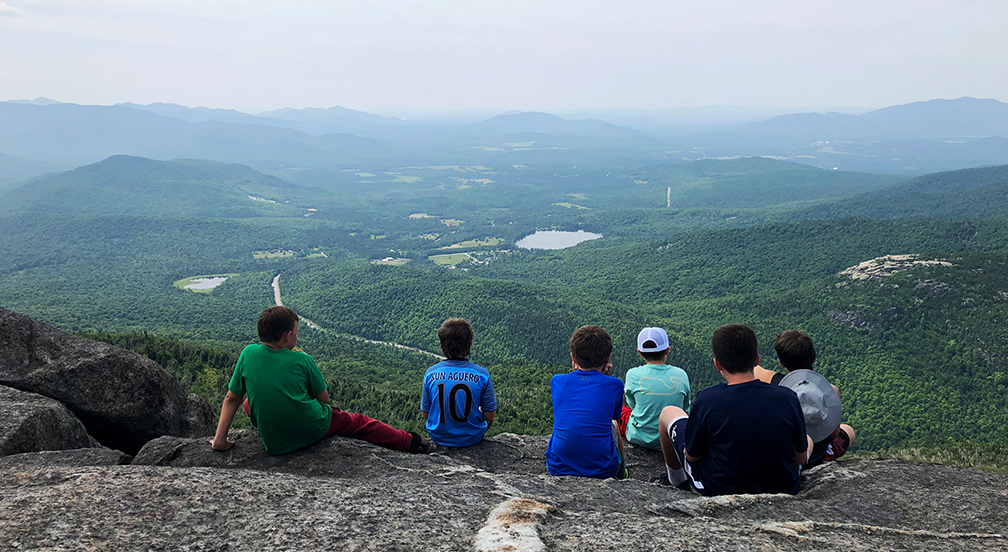
Why is Camp so Beneficial? By #13426 Ned Johnson
On a beautiful Tuesday, my wife and I dropped our skinny, pale son, Matthew, for the start of his junior year at Camp. We would miss him terribly. I suspected the boy we’d pick up in three and a half short weeks would be a different kid; that’s what great summer camps do.
I am both a parent of two ( #22526 Matthew and #22926 Katie), an educator, and co-author of The Self-Driven Child: The Science and Sense of Giving Your Kids More Control of Their Lives. The book tackles some of the reasons behind and offers solutions to what seem to be ever increasing scourges of stress-related conditions of anxiety, depression, and disordered motivation. The solution to stress is not relaxation but resilience, the ability to recover from difficulty and challenge. At a brain-based level, we want our kids to have the sense that a stressor is one that they can handle. Childhood and adolescence offer the opportunity to learn to deal with tolerable stressors, fostering in kids the confidence that they can handle other (and more adult) challenges that will come their way.
Who would have guessed that the solution, at least part of it, might lie on the shores of Lake Champlain? My son told me his junior year hike was “twelve hours and twenty miles in the pouring rain!” While the hike may have been half that length and really just a drizzle, in his mind, it’s a touchpoint. But not so much of “that terrible hike!” but, “what I got through.” Again, it’s the sense that matters.
Within clear rules of mealtime, bedtime, inspection, and expectations of “The Other Fellow First,” at Camp there is tremendous autonomy, which fosters that sense of control we want. Kids who may be “jocks” in school can explore arts at Brodie or boating from Junior Beach. There aren’t school friends to chide you for stepping outside defined roles. No parents asking, “Isn’t that a waste of time?” or “Shouldn’t you be doing your homework?” But instead JLs, ALs, and leaders asking, “Wouldn’t it be cool if…” And, when an art project fails or you fail to clear ANY height on the high jump, there is no parent as upset as the kid, overreacting by trying to “fix things.” We all need the opportunity to struggle, to have expectations go unmet, to suffer setbacks, embarrassments, and minor failures and then, with support, to cope. When adults swoop in to do for kids what they can do for themselves, we deprive kids of what they most need: the sense that they can handle difficulty and solve their problems.
So, yes, three weeks passed quickly. I smiled broadly as we saw Matthew perched atop a pile of trunks. As we tossed his things into our vehicle, we took note of the new young man we were taking home—smiling and freckled, seemingly untouched by sunscreen the past month. Was he actually taller or just standing taller? Friends gathered round to hug him and say they’d miss him and looked forward to seeing him next year. “Bye, Matt!” “See you later, Matt!” “Have a great year, Matt!” Quizzically, I looked toward him, an eyebrow raised—what happened to Matthew? He smiled. “Yeah, it’s amazing how much you can change while you’re at camp.”
To read more on the topic of raising resilient, healthy, independent kids read Ned’s book: The Self-Driven Child: The Science and Sense of Giving Your Kids More Control of Their Lives


